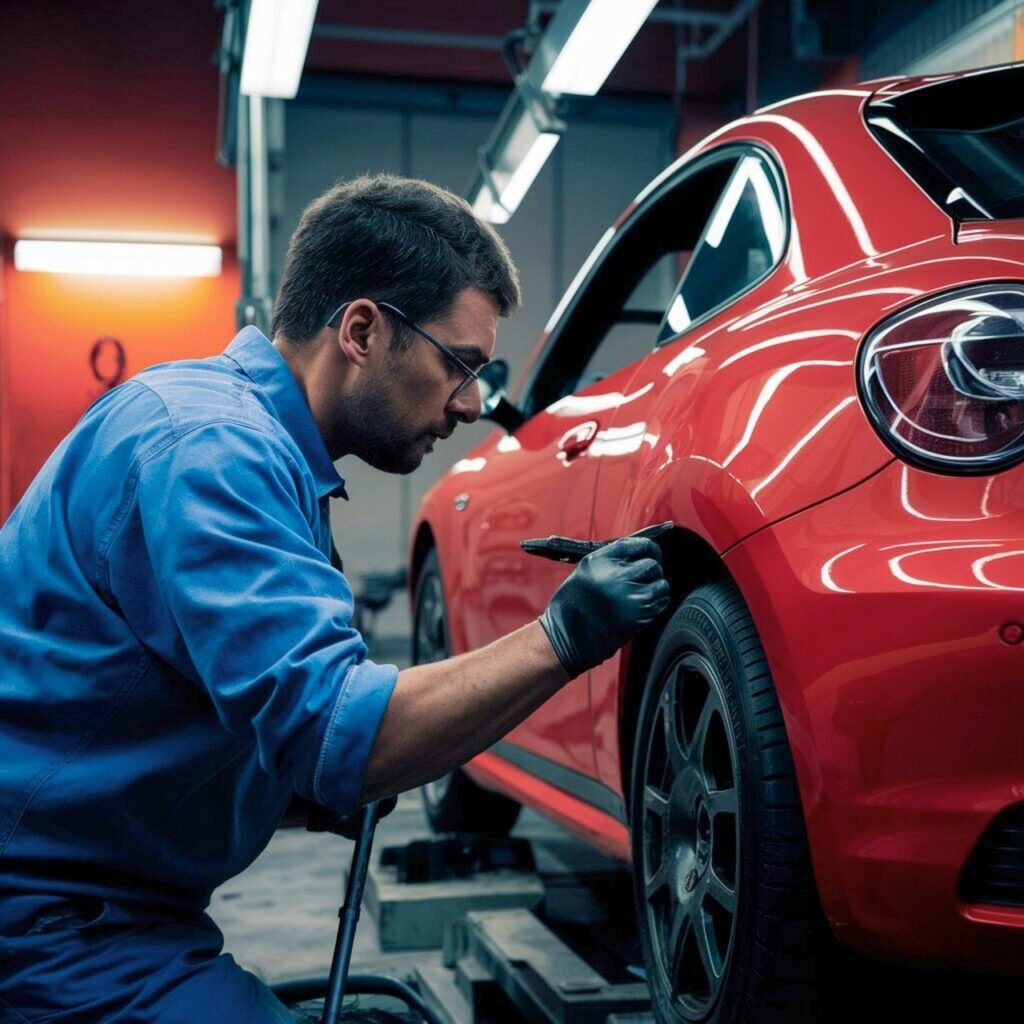Maintaining a vehicle is crucial for ensuring its longevity, performance, and safety. For new car owners, understanding the fundamentals of vehicle maintenance can be overwhelming. This article outlines essential tips that will help you keep your car in optimal condition.
1. Understand Your Owner’s Manual For Vehicle Maintenance
The owner’s manual is an invaluable resource that provides specific information about your vehicle. It includes details on:
- Recommended maintenance schedules
- Fluid specifications (oil, coolant, brake fluid)
- Tire pressure recommendations
- Information on warning lights and dashboard indicators
Familiarizing yourself with the manual will help you understand what your car needs and when.
2. Regular Oil Changes
Oil is the lifeblood of your engine. Regular oil changes are essential to keep your engine running smoothly. Here’s what you need to know:
- Frequency: Most manufacturers recommend changing the oil every 5,000 to 7,500 miles, but this can vary based on driving conditions and oil type.
- Type of Oil: Use the oil type specified in your owner’s manual (conventional vs. synthetic).
- Check Levels: Regularly check your oil level using the dipstick and top off if necessary.

3. Tire Maintenance
Tires are critical for safety and fuel efficiency. Proper tire maintenance includes:
- Tire Pressure: Check tire pressure monthly using a gauge; maintain it at the recommended PSI found in the owner’s manual or on a sticker inside the driver’s door.
- Tread Depth: Ensure adequate tread depth by performing the penny test: insert a penny into the tread; if you can see Lincoln’s head, it’s time for new tires.
- Rotation and Alignment: Rotate tires every 5,000 to 7,500 miles and have wheel alignment checked annually or if you notice uneven wear.
4. Brake System Checks
Brakes are vital for safety. Regular checks can prevent costly repairs:
- Listen for Noises: Squeaking or grinding sounds may indicate worn brake pads.
- Brake Fluid Level: Check brake fluid levels regularly; low levels could indicate a leak or worn brakes.
- Professional Inspection: Have brakes inspected at least once a year by a qualified technician.
5. Battery Care
A well-maintained battery ensures reliable starts and electrical system performance:
- Clean Terminals: Keep battery terminals clean from corrosion by disconnecting them and cleaning with a mixture of baking soda and water.
- Check Connections: Ensure connections are tight to prevent power loss.
- Test Battery Life: Have your battery tested annually, especially before winter months when cold weather can affect performance.
6. Fluid Checks
Regularly checking all fluids is essential for vehicle health:
- Coolant Levels: Check coolant levels regularly to prevent overheating; replace as needed according to manufacturer recommendations.
- Transmission Fluid: Check transmission fluid levels as per the manual; change it based on mileage or if it appears dark or burnt.
- Windshield Washer Fluid: Keep windshield washer fluid topped off for clear visibility.
7. Wiper Blade Replacement
Good visibility is crucial while driving:
- Replace wiper blades every 6 to 12 months or sooner if they leave streaks or miss spots while wiping.
8. Clean Your Vehicle Regularly
Regular cleaning helps maintain both aesthetics and functionality:
- Exterior Wash & Wax: Wash your car regularly to remove dirt and contaminants; waxing protects paint from UV rays and oxidation.
- Interior Cleaning: Vacuum seats and carpets; clean surfaces with appropriate cleaners to avoid damage.
9. Monitor Dashboard Warning Lights
Dashboard warning lights provide critical information about vehicle health:
- Familiarize yourself with each light’s meaning as described in your owner’s manual.
If any warning lights illuminate while driving, address them promptly—ignoring them could lead to severe issues.
10. Schedule Professional Inspections for vehicle Maintenance
While DIY maintenance is important, professional inspections are equally vital:
- Schedule annual inspections with certified mechanics who can identify potential problems before they escalate into costly repairs.
By following these tips diligently, new car owners can ensure their vehicles remain safe, efficient, and enjoyable to drive over time
